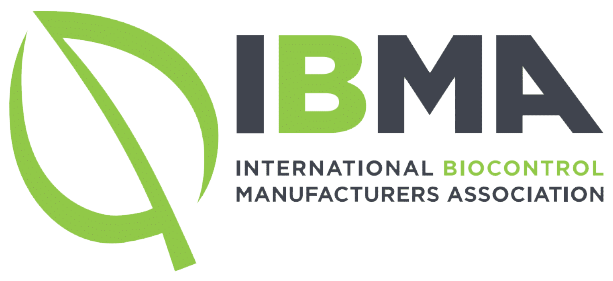Following joint calls with farmers organizations to speed up access to biocontrol, IBMA invited Copa Cogeca and IFOAM Organics Europe to meet with Carlos Goulart, Secretary of Animal and Plant Health of the Ministry of Agriculture and Livestock of Brazil to learn more about the Brazilian experience with biocontrol. The Plant Health Attaché, Permanent Representation of Belgium to the EU was also in attendance.
“Farmers in Brazil use biocontrol because they know it works. We did not force them to use it. We made it available, farmers saw the benefits and demanded more. The fast-track process means they now have more.”
Carlos Goulart, Secretary of Animal and Plant Health of the Ministry of Agriculture and Livestock of Brazil
Brazil is a biocontrol powerhouse. In the last 2 years, around an additional 100 biological products have been registered for use there and this number grows every year. Biocontrol is used on 46 million acres, about 60% of agricultural land in Brazil. Farmers use it because it works and brings stability to production. It is in the farmers’ toolbox because Brazilian authorities responded to farmer demand for biocontrol by prioritizing it in the authorization process. Now, when a biocontrol product is registered for authorisation, it is fast-tracked to the front of the queue, assessed, and approved (where appropriate) in 2 years, compared to the almost decade wait European farmers often face.
Farmers in Europe are also demanding more biocontrol. To find out how European policymakers can be encouraged to look and learn from Brazil, IBMA invited Carlos Goulart, Secretary of Animal and Plant Health of the Ministry of Agriculture and Livestock of Brazil to share his experiences with Copa Cogeca and IFOAM Organics Europe, organisations representing millions of farmers across Europe.
Biocontrol Background
In 2013, sightings of the cotton bollworm were recorded in central Brazil, a pest with over 250 hosts, and at that time, no chemical product was registered to control it. Farmers then successfully applied biological control methods using a virus specific to the cotton bollworm larva and the parasitic wasp Trichogramma pretiosum. This was a transformative moment for biocontrol and agriculture in Brazil. Farmers saw it worked and spread the word about it. Since then, demand has increased and in 2014 key changes were made to the authorisation process in Brazil to allow biocontrol and in particular microbials to be registered quickly and for control of a given pest across any crop.
The pest does not care
Copa Cogeca noted that while the use of chemical pesticides is being reduced not enough biocontrol alternatives are being made available to farmers. There also seems to be uncertainty amongst some farmers on how biocontrol works.
Carlos Goulart reiterated the need to not only talk about alternatives but also make them available so that farmers can see how they work. “The pest does not care” he said, “farmers saw the benefits of biocontrol and use it because it brings stability to production and consistent, year on year, gains.”
What Europe can learn from Brazil
Europe attempted to speed up access to biocontrol in the now withdrawn Sustainable Use Regulation (SUR). Alessandra Moccia, IBMA Vice President, was keen to find out what Europe could learn from Brazil to capitalize on the cross-party support biocontrol received in SUR discussions. The response:
- Raise awareness of biocontrol. In Brazil, only 10% of farmers have never heard of biocontrol whereas in the US, 86% of farmers don’t know about it.
- Provide training on how to assess biocontrol. Training on how to evaluate chemical solutions was provided so it made sense to have training on how to evaluate biocontrol. More expertise meant we could fast-track. The results speak for themselves.
- Don’t force farmers. Make biocontrol available, invite farmers to demonstrations, show them how it works. Farmers will then make their own choices. In Brazil this choice is for biocontrol.
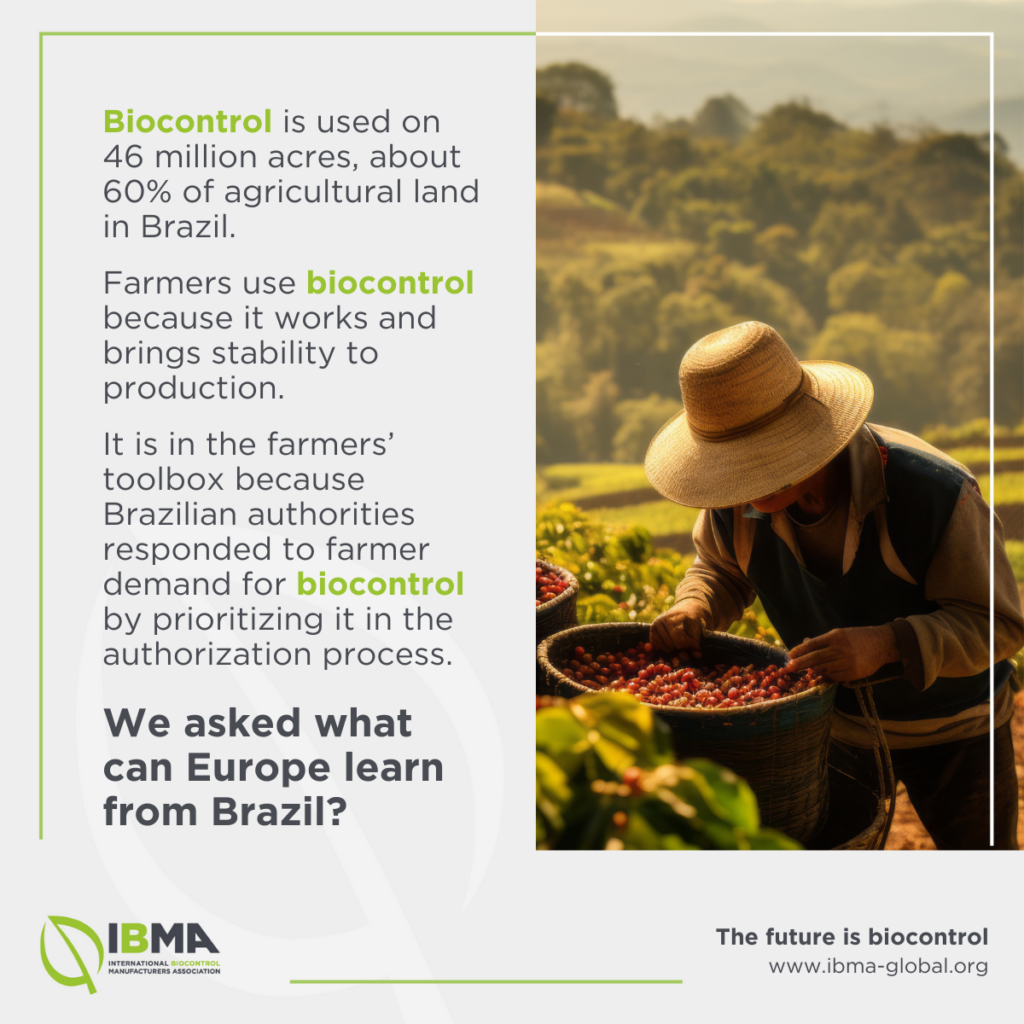
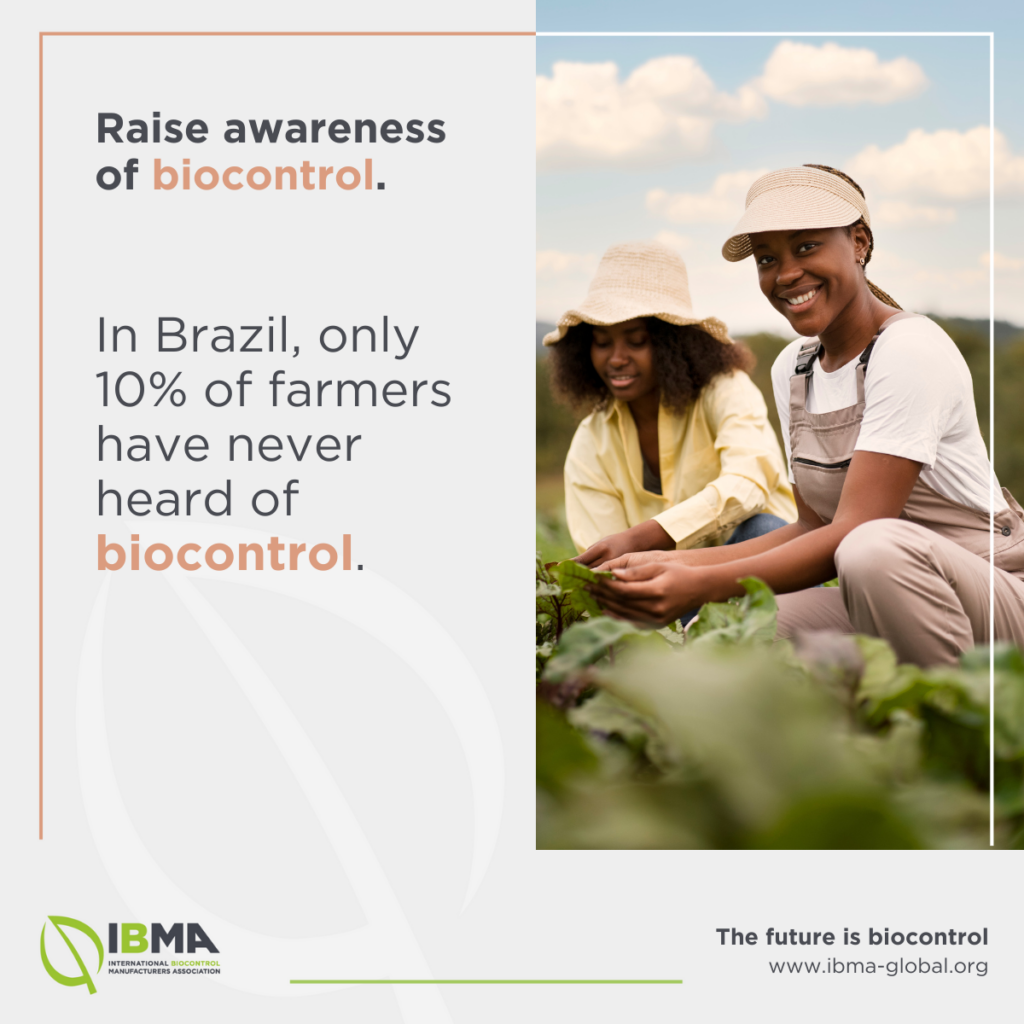
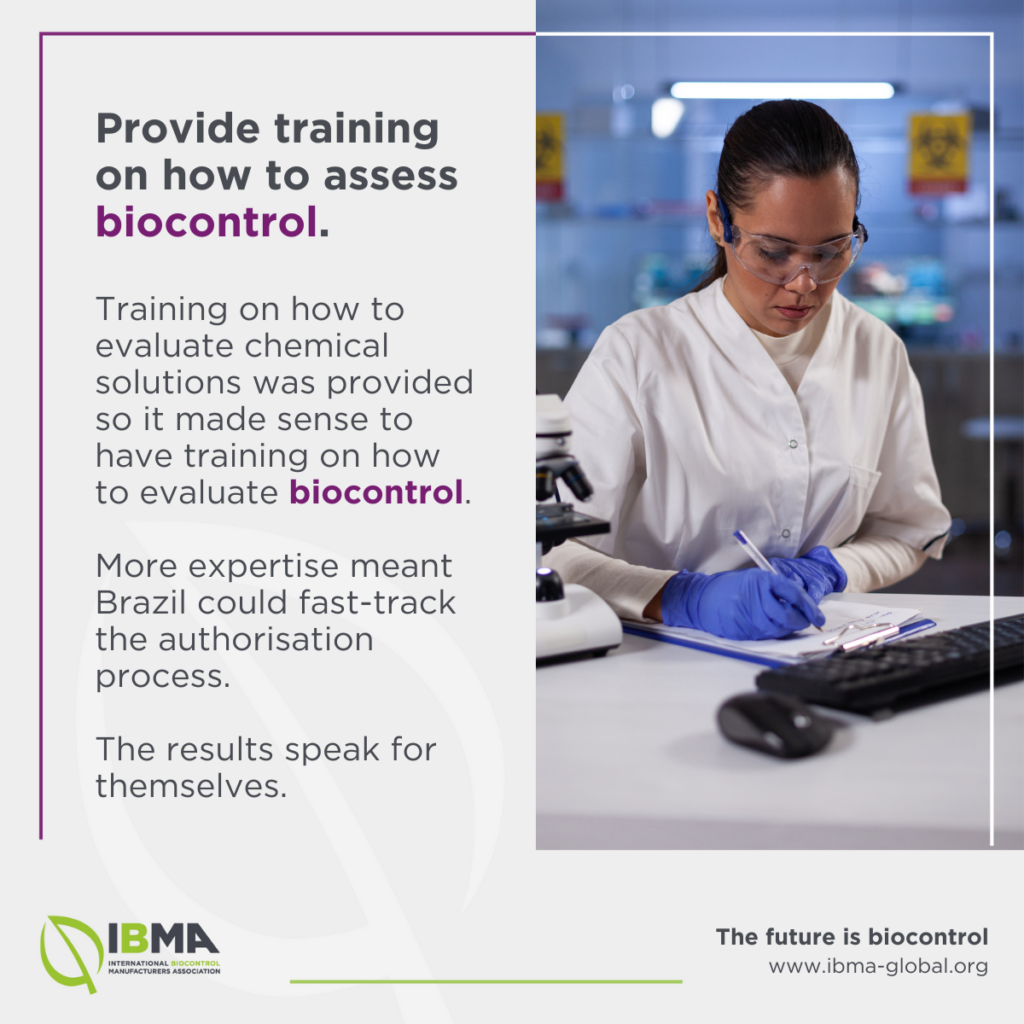
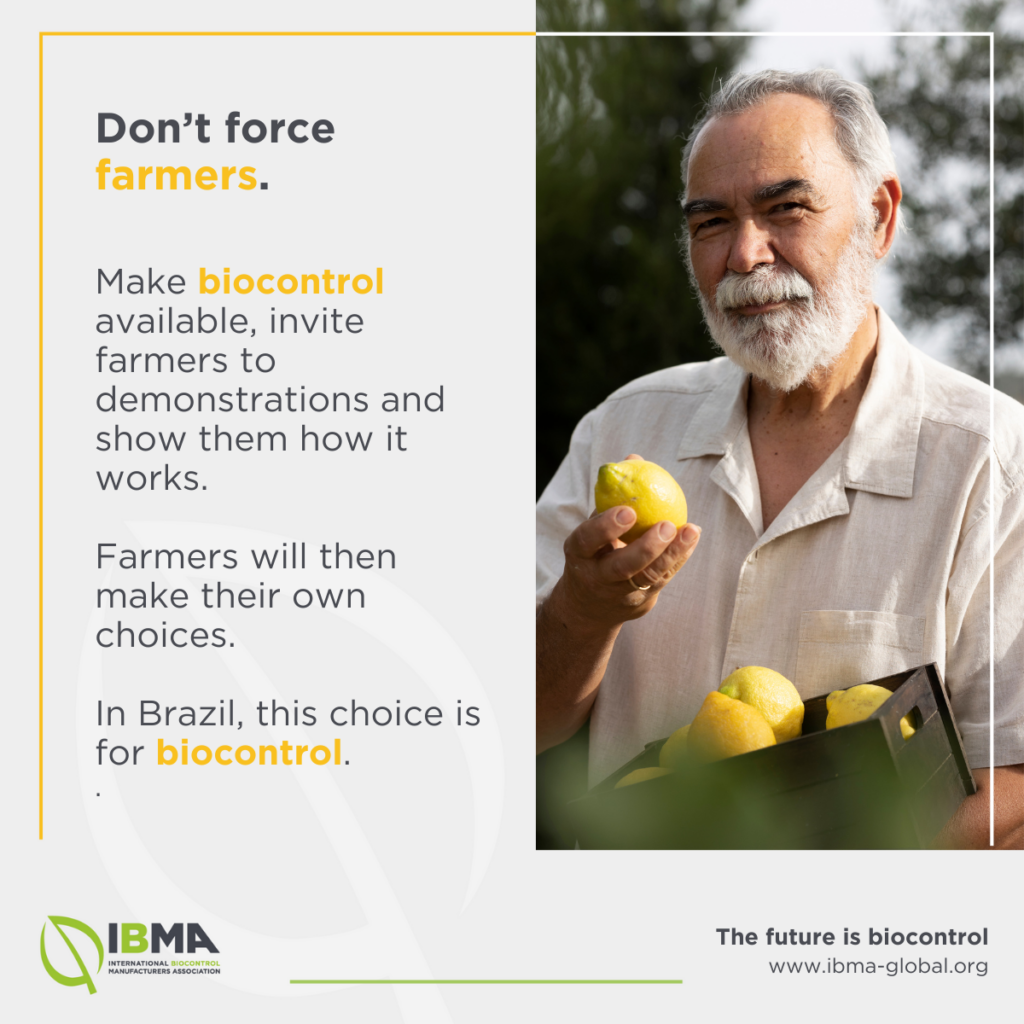
Building on biocontrol appeal
Thanking Carlos Goulart for sharing his experiences and expertise, Jennifer Lewis, IBMA Executive Director says “We were delighted to be able to advance our strategy of building on biocontrol support. As a global association, IBMA is very aware of the strengths of the Brazilian market and is keen to share the lessons learned from their strategy and see how Europe can support farmers with biocontrol.”
Representatives of IFOAM Organics Europe call on the Commission to “come up with a more favourable legal framework that would allow for a faster uptake of biocontrol and provide incentives to make independent and impartial extension services available to farmers.”
Jens Boyen, Plant Health Attaché, Permanent Representation of Belgium to the EU said “Back in March, IBMA hosted a high-level biocontrol discussion under the auspices of the Belgian Presidency with many of the attendees who now came to meet the Brazilian Ministry. This speaks for the support biocontrol has and highlights the need to ensure it is a priority in post-election policy-making discussions on agriculture.”
Farmers need biocontrol solutions in their toolbox without further delay. It’s time to work together and make this happen.
We can start by:
- Creating a legal definition of biocontrol
- Introducing fast track measures through targeted changes for 1107/2009 for biocontrol
- Creating priority lanes for biocontrol in all member states
The calls for action are loud and clear. The land needs it, farmers want it, consumers demand it.
Contact and resources
- Isabelle Pinzauti Babrzynski, Senior Advocacy and Outreach Manager, isabelle.pinzauti@ibma-global.org, 0032 497695842
- Bioinputs – Increasing Brazilian Biodiversity
- IBMA & Copa Cogeca – Letter to the Commission
- IBMA & IFOAM Organics Europe – Call for Policies
- High-level biocontrol discussion under auspices of Belgian Presidency
 Square de Meeûs 35, 1000 Bruxelles
Square de Meeûs 35, 1000 Bruxelles